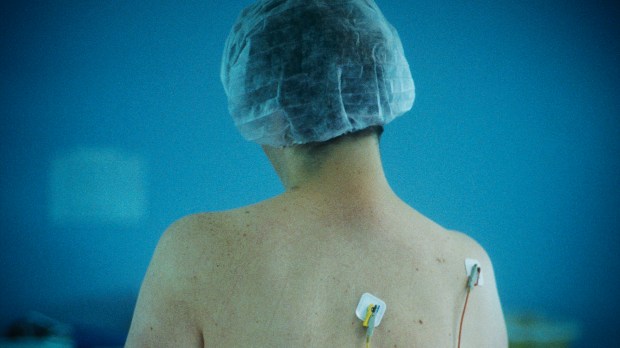I think I just realized something of what it felt like for Jesus to become a baby. Not fully, of course; but I’d always focused on the lowliness and helplessness He must have experienced. I’d never much considered the mystery of all he left behind to enter into a womb — all the control that he gave up.
I recently completed a round of Electroconvulsive Therapy for extreme depression. It’s not like it used to be, at least physically — it’s done under anesthesia and muscle relaxant, so your body doesn’t suffer. But mentally, it causes a nightmare of short-term memory loss, irritability, confusion, and inability to think clearly and make decisions. These side effects are temporary, but they cause so much stress and difficulty that they can interfere with the healing function of the treatments, unless the patient can get a reprieve from stressful responsibilities and decision-making. All this is to say that my family, in order to ensure the success of my treatments, has decided to remove me from my parenting duties and everyday responsibilities as much as possible; and I’m feeling very much like a baby.
Like Baby Jesus, I’m forced to trust that my family knows what’s good for me — with the added problem of paranoia, because I keep forgetting what they’ve told me and thinking that they’re intentionally keeping me in the dark. This is my first real taste of blind trust: agreeing to my family’s plans because I know they’re right, even while my instincts are screaming that I’m being taken advantage of. Like a baby, I don’t know what’s good for me right now.
Maybe a truer comparison is to my mother, who’s suffering the slow martyrdom of Alzheimer’s. Of course we’ve never felt what it’s like to be divine, but we remember what it was like to be fully functioning adults, and that’s enough. Like St. Peter, we’re being forced to come to terms with a new reality: “When you were younger you dressed yourself and went where you wanted; but when you are old you will stretch out your hands, and someone else will dress you and lead you where you do not want to go” (John 21:18).
My instinctive reaction to this is to veer between the extremes of paranoia and guilt. After I accused my husband several times of hiding things from me, only to find out that I had just forgotten what he’d told me, I am learning to be better about giving him the benefit of the doubt. To comfort myself for the loss of my ability to micromanage, though, I find myself instead trying to feel in control by knowing exactly who’s done what for me, and who I need to thank. Somehow it’s easier to accept my weakness if I can compensate by keeping perfect track of who’s taking over for me, and acknowledging everybody with the perfect thank-you gift. That way I can show everyone that this is a just a temporary lapse, and soon I’ll be in control again! But I am thwarted again by my memory loss: I can’t remember who organized my house while I was in the hospital, or who babysat my kids, or who slipped that gift card into my pocket.
The only option I’m left with is gratitude — and even here there’s a choice. I can simply say “thank you,” and enjoy what I’ve been given, or I can scramble my gratitude up with guilt and apology and excuses: “Oh, I didn’t realize you did that for me! Oh gosh, I feel so bad for calling you selfish the other day. You didn’t have to do that, I would have managed fine by myself — but thank you, it’s so sweet of you. Let me know if you need a break, so you don’t get worn out from helping me!”
At this point my patient husband always smiles, stops me, and says “Don’t say you’re sorry! Just say thank you.” I’m making that my motto for this Advent. If I want to be like Baby Jesus, I have to accept what I’m given.

